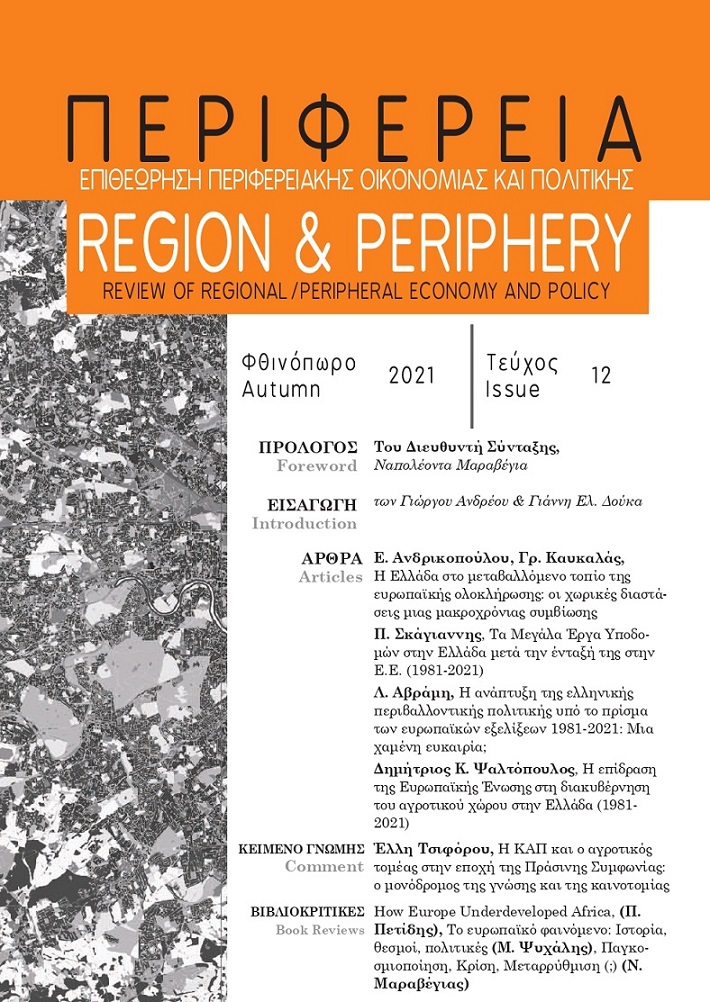The evolution of Greek environmental policy in the light of European developments(1981-2021): A missed opportunity?
Abstract
Greece traditionally belongs to the group of countries that are characterized as laggards due to the moderate performance of the Greek environmental policy and the incorrect implementation of the European legislation. Traditionally,
environmental protection issues have not been high on the Greek governments’ agenda, while the system of environmental governance is characterized by timeless
weakness and pathogens. Undoubtedly, the development of the Greek environmental policy is inextricably linked to the even delayed implementation of the European legislation. To what extent is the influence of the European policy
reflected in the national performance? To what extent have the Greek governments managed to seize the opportunities created by the framework for European cooperation for the country’s gradual transition to sustainable development? The
present study attempts to investigate the national and European developments in the field of environmental policy, critically evaluate the outcomes of the Greek environmental
policy since its accession to the EU, as well as underline the factors that contributed to them.
Article Details
- How to Cite
-
Avrami, L. (2021). The evolution of Greek environmental policy in the light of European developments(1981-2021): A missed opportunity?. Perifereia | Regional Integration: Politics, Economics, Governance, 12(12), 65–98. https://doi.org/10.12681/rp.28888
- Section
- Research Articles

This work is licensed under a Creative Commons Attribution-NonCommercial 4.0 International License.
Authors who publish with this journal agree to the following terms:
· Authors retain copyright and grant the journal right of first publication with the work simultaneously licensed under a Creative Commons Attribution Non-Commercial License that allows others to share the work with an acknowledgement of the work's authorship and initial publication in this journal.
· Authors are able to enter into separate, additional contractual arrangements for the non-exclusive distribution of the journal's published version of the work (e.g. post it to an institutional repository or publish it in a book), with an acknowledgement of its initial publication in this journal.
· Authors are permitted and encouraged to post their work online (preferably in institutional repositories or on their website) prior to and during the submission process, as it can lead to productive exchanges, as well as earlier and greater citation of published work.



